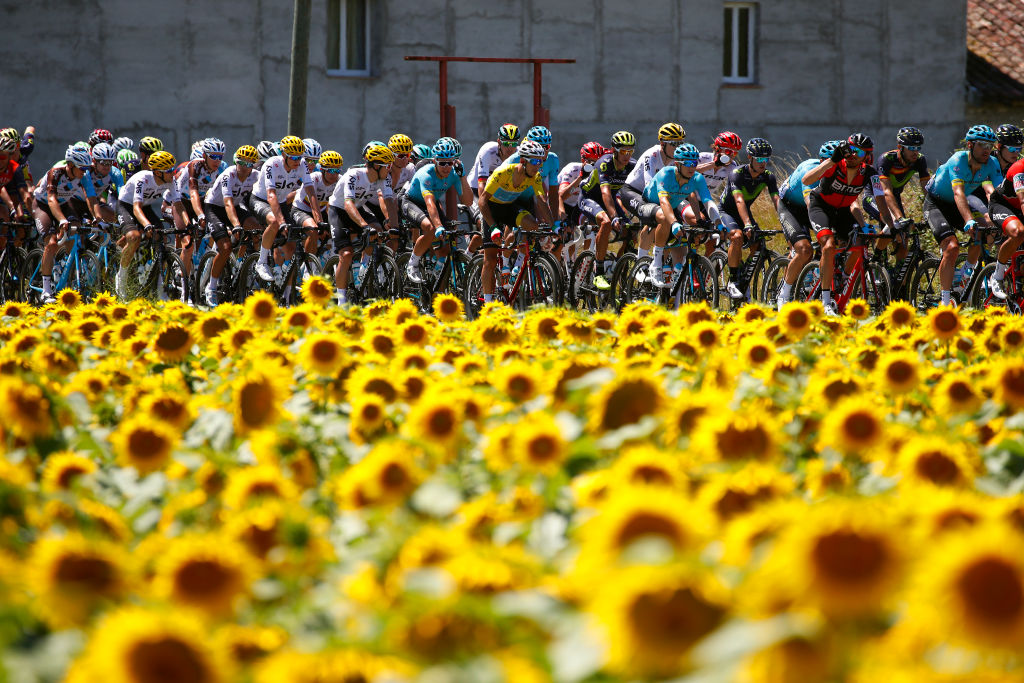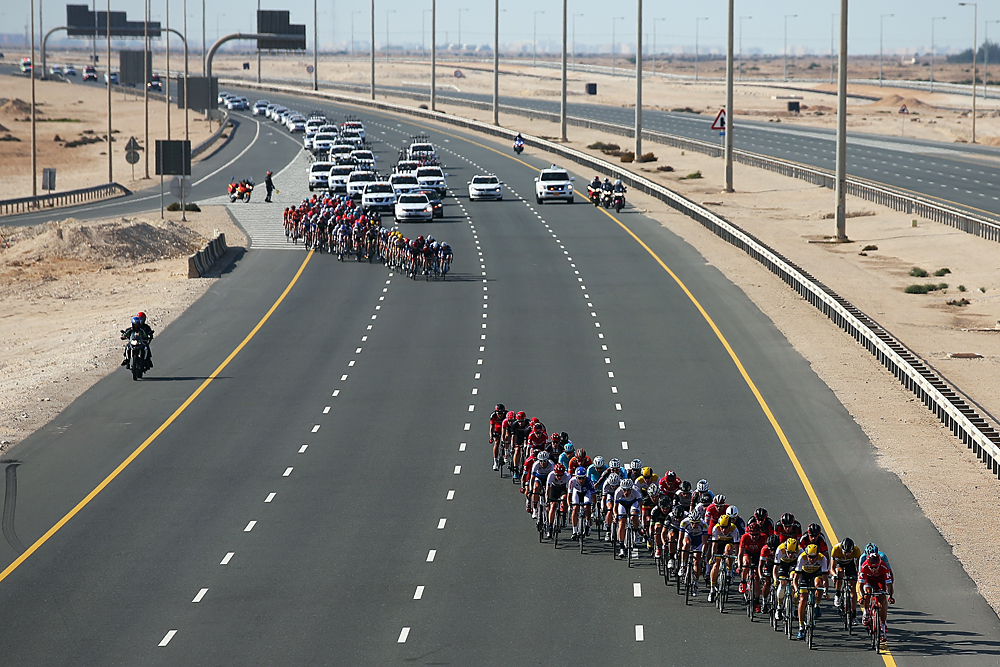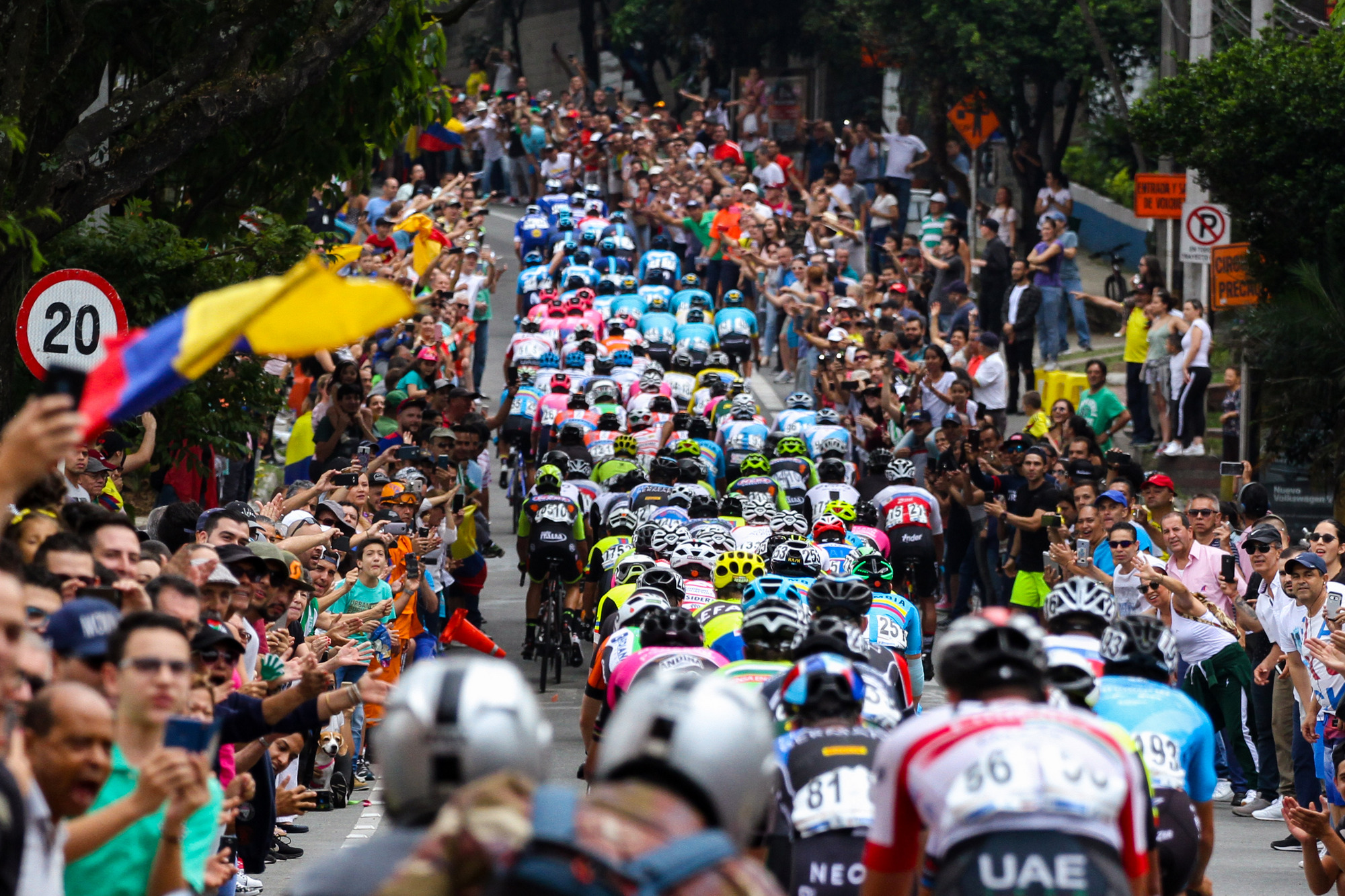Opinion: Too many questions surround 2020 Tour de France
Coronavirus will likely affect cycling through 2022 and we need to plan for that now

The UCI and the Grand Tour organisers have, with great hubris, announced a rescheduled late 2020 season, starting with the Tour de France at the end of August, with other races before and the Giro d'Italia and Vuelta a Espana afterwards in October and November.
This decision has been taken well before we know just how the COVID-19 coronavirus pandemic will play out in the next months. At best, the Tour de France could be a morale-boosting flash of normality after a dark summer of lockdown and a life-saving effort for the sport of cycling. At worst, it could be a public health and public relations nightmare that could irreparably harm the sport.
COVID-19 will still be out there come August, that much is certain. And it will still be out there next July, too. Recent studies predict waves of new cases of the virus and the necessary suppression measures of social distancing and cancellation of mass events intermittently through 2022. These measures aren't a cure for the disease - nor are they a vaccination against future outbreaks, all they do is slow the steady march of the coronavirus through an almost fully susceptible population.
With so much uncertainty for the foreseeable future, pro cycling needs flexibility, creativity and experimentation - not hard-headedness and a white-knuckled grasp on tradition.
Yes, cycling needs racing soon and needs its stars right now. The sport needs to keep attracting fans and keep existing ones engaged. Without fans, the sponsorship model of cycling simply collapses like a pack of cards. With no sponsor income, teams fold and vanish. Races also rely on partners, sponsors, and suppliers - all of whom have centred their businesses around now-shuttered events and are now in dire financial straits. How can cycling continue to go on in the face of continual calendar disruptions?
Flanders Classics produced a compelling, better-than-expected virtual Tour of Flanders using BKool and have built the foundations of something they can expand in the near future. In the process, they showed the gamification of cycling attracts a younger demographic - something that cycling really needs. They are certainly exploring how to monetize it.
Team Ineos' race on Zwift brought in record numbers. The Tour de Suisse and Velon are about to follow suit on Rouvy. There will be a virtual Amstel Gold Race and a Giro d'Italia Virtual. All unsanctioned, with different rules, but a proof of concept.
Get The Leadout Newsletter
The latest race content, interviews, features, reviews and expert buying guides, direct to your inbox!
ESports were already a $138 billion industry in 2018 and cycling has hardly even touched the market. It seems a perfect temporary solution but the UCI and ASO continue, as if sailing on the Titanic, to play their fiddles after the iceberg has already ripped into their hull.
Flanders Classics and Belgian host broadcaster Sporza also made high-quality, feature-film-length 'Behind the Scenes' movies from past Tour of Flanders editions available for free to help keep fans engaged. The ASO must have warehouses full of reels of past Tour de France footage but have done nothing for the fans but provide false hopes for a 2020 Tour.
The stress of the pandemic is already showing the weaknesses in cycling's sponsorship model: teams were quick to call on riders to take pay cuts, races that depend on corporate sponsors and thick-walleted VIPs are already favouring cancellation as the hit from mass lockdowns has caused the greatest drop in the world's economies since World War II.
Politicians are coming under increasing pressure to re-open the economy while at the same time epidemiologists are sounding warning alarms against easing restrictions too soon.
Scientists from Harvard and the Imperial College in Britain, among others, agree that the inevitable lifting of suppression measures will lead to a second peak of COVID-19, the timing of which could very well coincide with this August-September Tour de France folly.
The millions of unemployed, the overworked health care workers - thousands of whom have caught COVID-19 from their patients - and the 139,419 families (as of April 15) mourning the deaths of their loved ones might not find the Tour de France to be a beacon of hope come August.
What would the 2020 Tour de France even look like?

The UCI and ASO can set dates for a late 2020 calendar all they want but there won't be a peloton of global stars to race the races unless travel restrictions are lifted.
Most countries have closed their borders to non-citizens. Even if France sees a sharp decline in COVID-19 cases during the summer, lifting of travel restrictions in Europe will increase the risk the virus will be reintroduced and spread again.
Science magazine calls the lifting of lockdowns a "dangerous process of trial and error". Once lockdowns are lifted, the only tools left in the arsenal to combat the spread of COVID-19 will be quarantines and tracking contacts of infected people.
Travellers such as professional cyclists returning to Europe to race, fans traveling to enjoy the spectacle again, or the thousands of journalists, broadcasters and race staff, could fracture this one last weapon.
Visitors and their contacts are far harder to trace and they are also more likely to be visiting mass gatherings, potential hotspots for COVID-19.
Alessandro Vespignani, a disease modeller at Northeastern University says, "As soon as you reopen to travellers, that could be something that the contact tracing system is not able to cope with."
Professional cycling could implement an ADAMS-like system that can include all of the team and race staff to track whereabouts of everyone in the race entourage but extending this to the spectators would be practically impossible.
In California, one of the hardest-hit states in the US, the governor Gavin Newsom sounded a warning: "The prospect of mass gathering is negligible at best until we get to herd immunity and we get to a vaccine. So large-scale events that bring in hundreds, thousands, tens of thousands of strangers is not in the cards based on our guidelines and current expectations."
Certainly, Newsom is not the only leader thinking this way.
A second wave
Herd immunity. Easier said than done. The UK government already discovered the terrible optics of suggesting letting the virus wash over the population to speed up widespread immunity - a strategy that undoubtedly would have lead to unthinkable numbers of preventable deaths.
However, few are discussing the terrible catch-22 of playing hide and seek with a pandemic: the better a country is at preventing infection now, the quicker they'll consider opening back up. But with fewer people recovered and now immune to the virus, the more vulnerable the population will be. The methods being used now to prevent outsiders from bringing the virus back in - border closures and mandatory 14-day quarantines - are just not amenable for cycling, a sport that relies on the fluid movement of people.
Holding the Tour de France even four months after the confirmed case count has begun to slow seems laughably optimistic.
The original Imperial College modeling study by Ferguson et al - assumed suppression measures would remain in place to September but six weeks after they're lifted there will likely be another large peak of infections. If the peak is pushed further into the winter, a paper in Science notes, it could coincide with influenza season and further strain healthcare system.
What the virus does in 2021 and beyond depends on a lot of unknowns: how long does immunity to this SARS-CoV-2 virus last? If it's like other coronaviruses where immunity lasts less than a year, it could keep popping up every season until we have a vaccination - which is at least 18 months away by most estimates.
Cycling needs to plan for this landscape of shifting dates and uncertainty - an environment that will make its traditional model impossible to sustain - and not cling so unyieldingly to its immediate history.
So many questions

Is there a way to have a Tour de France - or any pro race for that matter - in the traditional sense before COVID-19 is gone?
Roadsides lined with fans, camper vans packed with families, people climbing on top of each other in every switchback of a major mountain ascent, fans closing in on the riders to cheer them on; all of this was thrilling to see before COVID-19 but are now just too horrifying to even consider.
The hurdles to seeing any professional cycling race in the foreseeable future are many.
There will need to be international support for loosening travel restrictions before the race. Governments will have to relax lockdown measures six weeks before the race so that riders can train. To be equitable, all participants must have the same opportunities to train outdoors - who is going to build this international coalition? Or is it going to be restricted to French residents? Will the winner get an asterisk?
Let's not forget this is a professional bike race and teams will need to be paying their riders. Will those pay cuts be reversed? Is all that sponsor money going to suddenly reappear just because there's a three-week bike race on? If some WorldTour teams go under, will the Tour allow new wildcards? When will that decision be made?
What about anti-doping? Will there be guarantees all the riders can be tested for an acceptable period before the race?
Speaking of testing, the Tour will surely have to perform COVID-19 testing for everyone on the race - that extends down to hotel staff, caterers, etc - and have constant vigilance for anyone showing symptoms of illness. The tests must be accurate and quick to turn around. It is the only way to prevent the race from becoming a travelling virus vector. There are such tests available but there certainly is not a surplus. The priority will be to use them for the wider public health around the world, not for a sporting event.
There must be a fully communicated plan for the event that someone in the race might test positive for COVID-19. The UAE Tour showed that there are plenty of lessons to be learned for how to manage the virus.
Will the ASO be held liable if someone in the race or on the sidelines dies from COVID-19 after catching it during the Tour de France? Or will the riders staff and anyone on the race have to sign legal releases?
Will riders want to take the risk of repeating the UAE Tour - being quarantined for weeks on end but this time not even in an upscale Abu Dhabi hotel but in a two-star outside Lyon?
Will the older staff members, asthmatics, diabetics or those with heart disease want to take the increased risks that come with them catching the virus? The average age for WorldTour sports directors and managers is 48 and they are all male - even without pre-existing conditions, those two factors alone raise the risk of severe effects from contracting the virus.
The questions are endless.
Will the local hospitals have the resources to handle riders who are injured in crashes? Will the gendarmes and officials be able to control crowds and maintain any distancing requirements? Will the people of towns that host the race actually welcome the entourage? Their leaders might sign on but will the citizens who have lost their jobs because of suppression measures be resentful, stage protests, or worse - become violent toward the riders?
The ASO think their Tour will be "the beacon that allows us to look to the future and say, 'yes, we'll get through this'" but will the people of France feel this way after six months of economic devastation?
Lastly, what kind of precedent is this setting? Is it what we want, and is it right that the ASO, the UCI and France get to make that decision?
Maybe the Tour de France should look back to its roots as a model for the future, maybe they should make the race look less like 2019 and more like 1919, with small groups of riders spread out across vast distances with little to no support. Riders like Geraint Thomas, Willie Smit, Robert Gesink and Laurens De Vreese have done huge trainer rides, why not have stages of 380km over 48 hours?
Maybe there is also a way to continue the tradition of the Tour de France starting with its roots while at the same time embracing the virtual aspect of the sport.
It's going to take experimentation, innovation, and creative thinking until the world is free of this virus - the efforts made now could change the sport's business model for the better and make cycling prepared for the next pandemic.
Going on as if nothing has changed is surely a recipe for disaster.

Laura Weislo has been with Cyclingnews since 2006 after making a switch from a career in science. As Managing Editor, she coordinates coverage for North American events and global news. As former elite-level road racer who dabbled in cyclo-cross and track, Laura has a passion for all three disciplines. When not working she likes to go camping and explore lesser traveled roads, paths and gravel tracks. Laura specialises in covering doping, anti-doping, UCI governance and performing data analysis.